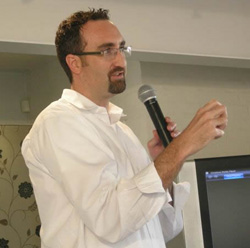 Stakeholder registering for the Dallas round of TPP negotiators have been informed that the conference style presentation format supported at all previous rounds has been disbanded and in place stakeholders will be given options of setting up “tables” to pass out information to browsing delegates.
Stakeholder registering for the Dallas round of TPP negotiators have been informed that the conference style presentation format supported at all previous rounds has been disbanded and in place stakeholders will be given options of setting up “tables” to pass out information to browsing delegates.
Carol Guthrie, a public affairs official at USTR, explained in email correspondence: “The format for these more direct discussions will take the place of the conference-style format, to enable more valuable exchanges at this stage. The United States discussed this format with all our TPP counterparts, considering that at this stage in the talks, individual discussions with interested stakeholders rather than general presentations would yield more valuable input for negotiators.”
NGOs and others that both report on trade news on blogs and in the press and represent stakeholder communities, as is common among advocacy and academic communities, have been told that they cannot obtain both a press and stakeholder credential. This is important because the negotiators hold press-only and stakeholder-only briefings where different information can be released.
The change from a presentation format to permitting only tabling represents a significant backtracking for public interest participation in a process that is already incredibly closed. One must constantly recall that this negotiation is not about trade rules as such. The process is debating new legislative minimum standards that will bind local democratic processes, including about the shape of local laws governing information on the internet and access to affordable medicines.
USTR’s removal of presentations from the stakeholder participation process leaves the impression that it is trying to decrease the influence of public interest input into the process my removing the ability to speak collectively to a broad cross current of negotiators at the same time. This is particularly true as the change was made without consulting public interest stakeholders. If the goal was to increase stakeholder participation, they would have added the tabling as an addition to, not substitute for, public presentations.
On April 1, a hoax news article proclaimed that the negotiators had made a “u-turn” in their decision-making and would begin releasing versions of the consolidated negotiating text after every round, as effectively occurred through leaks during the ACTA negotiations. With this latest announcement of a new decrease in stakeholder participation in the process, the contrast between fiction and reality could not be more stark.




